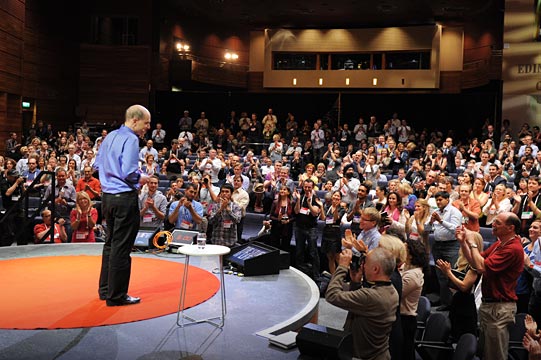Last updated on July 21, 2014
I myself know nothing, except just a little, enough to extract an argument from another man who is wise and to receive it fairly.
Socrates, Theaetetus, 161b
If there is one essential lesson to learn, it lies in one exact contradictory sentiment: you know nothing. The Internet highlights this problem more often than not, but the more knowledge you retain, the more knowledge you discover and the wider your understanding. To know more means to continually know less, or at least to accept that you will only ever know what lies in your field of personal experience. You cannot be everywhere at all times, and that is just the fact of it.
On the other hand, humanity tends to place great stock in their own ability to “know” things. We like to categorize all the facets of human civilization, to organize a vast, untamed wilderness of existence with our best possible methodologies and faculties. However, we tend not to keep these things in separate tension. The religious man wanders into scientific discussions; the liberal arts major wanders into the business world. We like a little overarching narrative to events; it makes us feel as if we’re in control. Or, to put it more negatively, it makes use feel like we can understand and control it all.
No doubt, that’s just a natural psychological compulsion given to us through the imago dei. The Fall permeates all elements of our living and moving and being, so why would we not include our minds as well? We know the human mind and heart as fallible features prone to error on many levels, yet sometimes we place ourselves beyond reproach without realizing it.
TED Talks and Simplification
Take the advent of TED Talks, for example. The fascination with them on the Internet – little fifteen minute nuggets of knowledge, as we might say – lends validity to the way you might feel about some particular subject or another. TED fosters the promise of a technological future, that we will make the world a better place, and that we can use our accumulated knowledge to come to a holistic understanding of reaching that wonderful utopian ideal…whatever that is, or might mean.
Of course, the reason why TED Talks remain compelling for most arrives from a number of different factors. First, they’re massively entertaining (note that the “E” in “TED” is actually “Entertainment”), and viewers often conflate “entertaining” with “convincing”. Ever watch a Youtube video on the Internet about a subject you’re passionate about? Good editing and scripting can do wonders, as can the efficacy of selective information presentation. Blackfish, that documentary about Seaworld, presents a simple story that actually holds a lot more ambiguity and complications in the actual world. And yet, who the heck bothers to double check this information thereafter? I readily admit my own ignorance in this regard.

So let us ask of the TED Talks: do these arguments hold water? Does opposition arise when the speaker discusses the subject matter with other people in his/her field? You will not find the complexities of any one discussion found in a TED Talk. The modus operandi is simplifying enormously difficult concepts for a mass audience, and something will inevitably disappear in translation. Take this example from an actual TED talk given by Benjamin Bratton:
Let me tell you a story. I was at a presentation that a friend, an astrophysicist, gave to a potential donor. I thought the presentation was lucid and compelling (and I’m a professor of visual arts here at UC San Diego so at the end of the day, I know really nothing about astrophysics). After the talk the sponsor said to him, “you know what, I’m gonna pass because I just don’t feel inspired …you should be more like Malcolm Gladwell.”
At this point I kind of lost it. Can you imagine?
Think about it: an actual scientist who produces actual knowledge should be more like a journalist who recycles fake insights! This is beyond popularisation. This is taking something with value and substance and coring it out so that it can be swallowed without chewing. This is not the solution to our most frightening problems – rather this is one of our most frightening problems.
So I ask the question: does TED epitomize a situation where if a scientist’s work (or an artist’s or philosopher’s or activist’s or whoever) is told that their work is not worthy of support, because the public doesn’t feel good listening to them?
I submit that astrophysics run on the model of American Idol is a recipe for civilizational disaster.
I absolutely agree. Simplification should not fit onto the menu; we must raise the general understanding of the systems in which we live – politics, economics, history – and their vast nuances to actually solve said problems through innovation. Giving people a “feel-good” talk on inspiring topics (or re-affirming previously conceived notions) will not foster any forward development in civilization.
TED Talks are the sort of thing a narcissist society would develop: delineating things to make us feel like we know something when we know nothing. We’re not learning; we’re accepting what we already know or like in advance, and not seeing all the various areas for improvement. Why do we still live in architectural designs that originated centuries ago, and yet we hold all the information of accumulated human civilization at our fingertips? How do we still drive in cars with century old technology under the hood, and yet we can instant relay information across the world in milliseconds?
I can tell you: fear. Fear of development, fear of progress, and fear of the unknown. We only delve into the realms we know. We don’t want to look stupid, so we don’t bother or we say nothing. I accuse myself as much as anyone else in this category. Why would I want to know more, simply to realize how dumb I really am in the grand scheme? Nobody, that’s who. In our current time, it’s easier than ever to insulate yourself from the outside world and from intellectual opposition, and that’s an impulse I often fight.
And yet, at the same time, people of the Western world hold the ability to see what they don’t know, and understand what they may never understand just with a simple stroke of the keyboard. An amazing contradiction, that. So what do you do with all of that? Well, you might find that simplifying things might prove a daunting task when something comes along and destroys your ideas and previously held notions. Nothing could be more true for me as of late.

